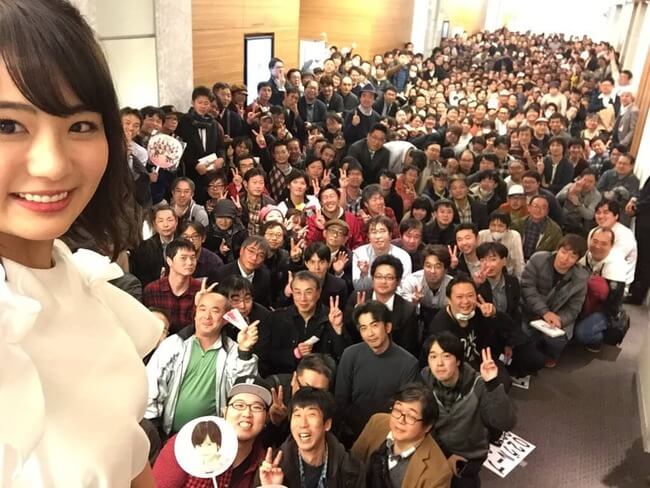Groups
Sakamichi Series: Nogizaka46 Sakurazaka46 Hinatazaka46
WACK Groups: BiSH
Japanese Idols News and Knowledge Base
Japanese Idols News and Knowledge Base

Japan’s music industry is one of the most distinctive and fascinating in the world, and its idol groups are a perfect example of its uniqueness. These groups have a huge and devoted fan base, known as “otaku,” who follow their every move, buy their merchandise, attend their concerts, and support them in every way possible. In this article, we’ll explore the weird and wonderful world of Japanese idol groups and their devoted otaku fans.
Idol groups are musical acts that feature young performers, often teenagers, who sing and dance in synchronized groups. These groups are heavily managed by production companies that control every aspect of their image and career, from their hairstyles and outfits to their songs and performances.
Idol groups are a unique aspect of Japanese pop culture and have been around since the 1970s. The first idol group, Candies, was formed in 1973, and since then, many more have followed in their footsteps. Today, there are hundreds of idol groups in Japan, each with its own unique sound, image, and fan base.
The term “otaku” is often used to describe fans of Japanese anime, manga, and video games, but it has also come to refer to fans of idol groups. Otaku fans are known for their passionate support of their favorite idols, and they are willing to spend large amounts of money on merchandise, concert tickets, and other items related to their idols.
Otaku culture is a significant part of Japanese pop culture, and it has had a considerable impact on the music industry. Many idol groups have a predominantly otaku fan base, and they often incorporate otaku themes and imagery into their music and performances.

Japanese idol groups have become popular around the world for several reasons. For one, their music is catchy, upbeat, and often features elaborate choreography. Their performances are highly polished, and their music videos are often visually stunning.
Another reason for their appeal is their image. Idol groups are often made up of young, attractive performers who are trained to be charming, likable, and relatable to their fans. They are marketed as “idols” who are meant to be looked up to and admired, and their fans often form emotional connections with them.
Idol groups also have a strong sense of community, both among their members and their fans. Fans often form their own subcultures, where they share their love of idols and attend events together. Members of idol groups often interact with their fans on social media, and they work hard to maintain a positive and supportive relationship with them.
While idol groups and their otaku fans can be seen as a harmless and fun aspect of Japanese pop culture, the industry has its dark side. Many idol group members are subjected to grueling schedules, strict diets, and intense pressure to maintain a perfect image. Some members have spoken out about the emotional and physical toll that this kind of lifestyle takes on them.
There have also been cases of fans becoming dangerously obsessed with their idols. In some extreme cases, fans have stalked or harassed their favorite idols, leading to security concerns and even the cancellation of events.

Japanese idol groups and their otaku fans are a fascinating and unique aspect of Japanese pop culture. Their catchy music, polished performances, and community spirit have made them popular around the world. However, the industry has its dark side, and it’s important to recognize the intense pressure that idol group members are under and the potential risks associated with fan obsession. Nonetheless, the world of Japanese idol groups and their devoted otaku fans is a fascinating subculture that continues to captivate and entertain people worldwide.